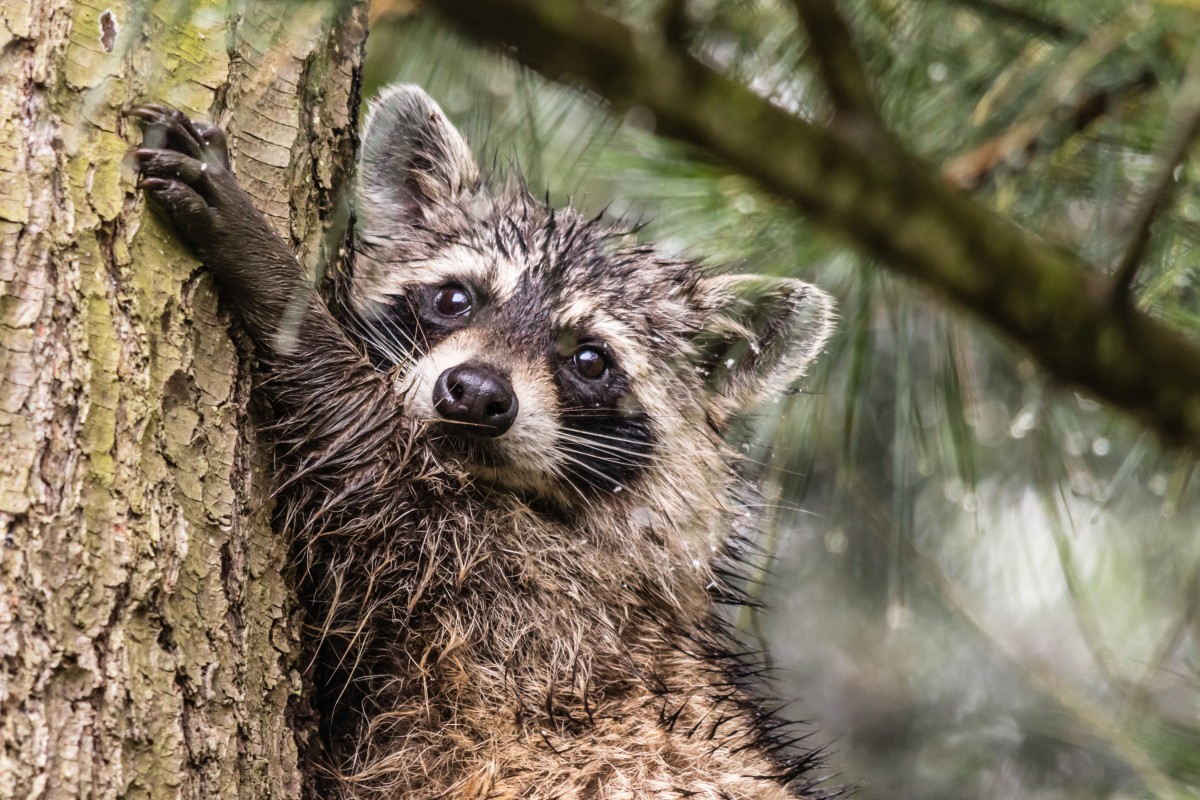MORGANTOWN — The Monongalia County Health Department confirmed Friday that a case of rabies was found in a raccoon in the southeastern part of Monongalia County on July 19.
According to MCHD Public Information Officer Mary Wade Triplett, the raccoon was found outside a house in National, which is about 15 minutes east of the Little Indian Wildlife Management Area on County Road 45.
The raccoon approached dogs that were tied up outside the house. Once the dogs began barking, the homeowner brought the dogs in the house. The raccoon then scurried off into a neighbor’s yard, where it was shot by the neighbor.
After the raccoon was collected and tested by authorities, the presence of rabies was confirmed.
“It is not believed that the dogs came in contact with the raccoon, but the homeowner was able to provide proof that her dogs had been vaccinated for rabies, so they were given a rabies booster and will be observed for 45 days,” Triplett said.
Triplett emphasized the importance of getting pets vaccinated against rabies, because unvaccinated pets that come into contact with a rabid animal are recommended to be put down.
USDA Wildlife Services confirmed to the MCHD that this was the fifth confirmed case of rabies in Monongalia County in the past year. However, officials are not certain exactly how many were in 2017 and how many were in 2018.
Another rabid raccoon was found in the same vicinity in early June.
“Rabies was not common in this area but that changed around 1979 when raccoons were brought in from the south to be hunted,” Triplett said. “Since then, rabies cases have gone up and down. We are on the outlook for it and doing a lot of testing and surveillance, so it’s difficult to say if rabies’ numbers have risen or if it’s that the surveillance has improved.”
Sheldon Owen, a wildlife specialist with the WVU Extension Service, said raccoons are responsible for about 90 percent of rabies cases in West Virginia. But, it can also be found in bats, foxes and skunks.
Overall, Triplett says people should avoid animals that they don’t know, that are being unusually aggressive and are exhibiting erratic behavior.
People that come in contact with a rabid or potentially rabid animal should contact emergency services and seek treatment immediately.
“Prevention is key, and rabies is treatable early on, but usually not as the disease progresses,” Triplett said.
Also, an oral rabies vaccine bait drop will be conducted by the U.S. Department of Agriculture Wildlife Services in mid-August. Triplett says Monongalia County is east of the drop zone and may get little to no rabies bait.
The Monongalia County Health Department offers some other basic tips to deter raccoons and avoid rabies:
- Keep pets’ vaccinations up to date
- Seal garbage cans tight
- Don’t feed raccoons
- Control access to the home
- Watch for raccoons or other strange animals that are active during the day
- Raccoons are persistent, so scare tactics, like banging pots and pans, won’t work
- Catching raccoons and keeping them as pets is against the law
- If a domestic animal such as a dog, cat or ferret bites a human, an MCHD Environmental Health registered sanitarian can be called. The number is 304-598-5131.
- People who find a bat in their home or a wild animal acting erratically on their property can call MECCA’s non-emergency number, 304-599-6382. MECCA will provide instructions on who to contact.
- People who are bitten by a wild animal should call 911.
Owen adds: “Make sure your yard and home are not inviting areas to live. For example, fix any holes that might allow animals access under your porches or decks, and clean up clutter around your yard.”




